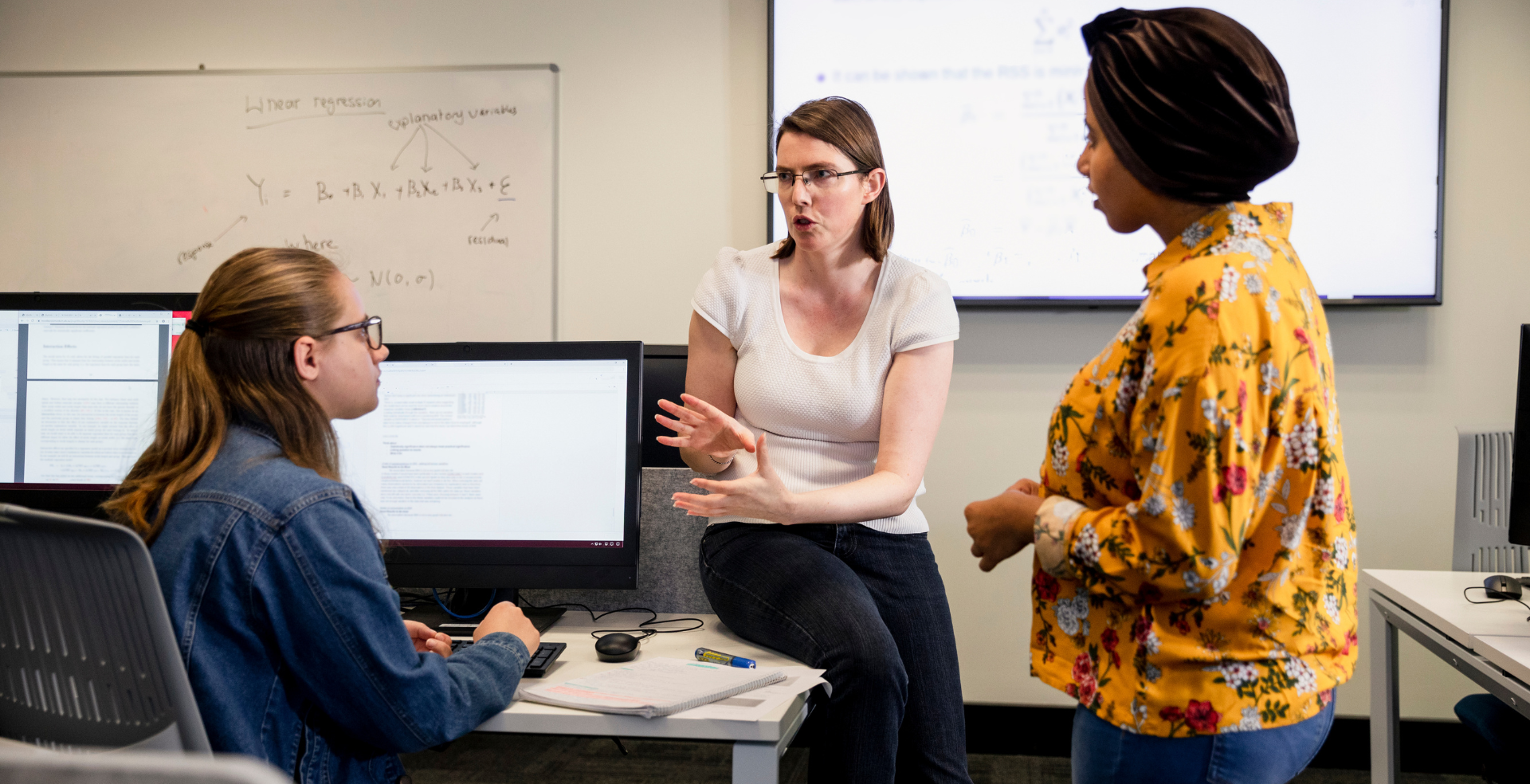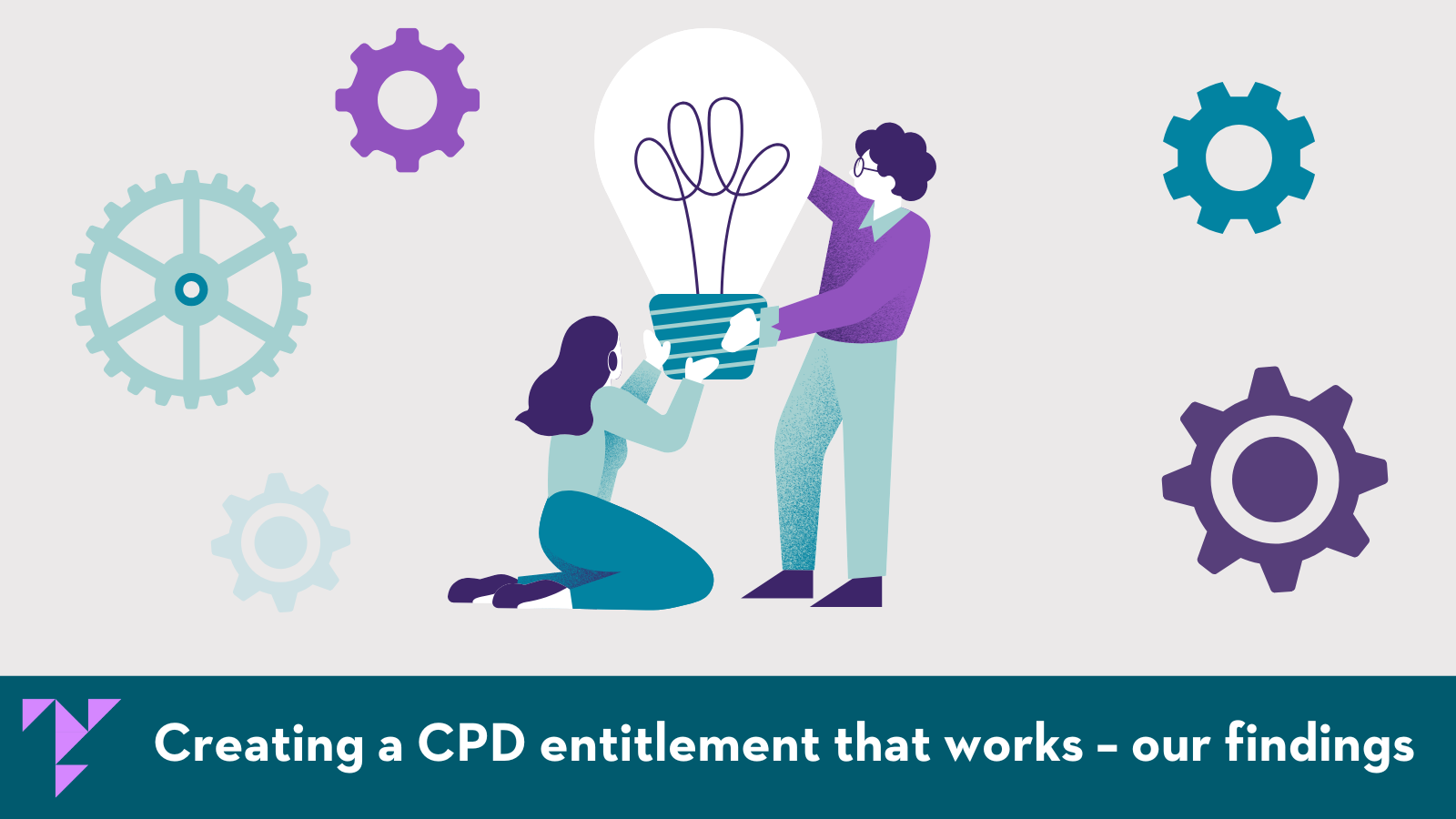Alex Beauchamp is an Expert Advisor for TDT’s Sheffield and Doncaster CPD Excellence Hub, a programme run with the support of the Department for Education. In this blog, Alex explores a CPD approach that he and his colleagues have been using at Hunter’s Bar and that he has been sharing with schools across the Sheffield and Doncaster region, with a foreword from Dylan Wiliam.
Foreword by Dylan Wiliam
When people ask me for an example of school where formative assessment has become truly embedded in the work of the school, I say “Hunter’s Bar Junior School” in Sheffield. I visited the school when they were a few years into their journey with formative assessment and I was impressed by how deeply high-quality formative assessment had become ingrained into teacher practice. I was even more impressed by the conversations I had with the children—confident, articulate learners who were firmly in control of their own learning.
When Siobhan Leahy and I created the Teacher Learning Community (TLC) model, we prepared agendas for two years of meetings. Many schools asked us, “When is year 3 coming out?” We said, “Year 3 is never coming out. If schools have followed the first two years of the programme, then teachers should be in a position to sustain their own professional learning and write year 3 (and 4 and 5 and 6…) themselves. This is exactly what staff at Hunter’s Bar Junior School has done. They have taken charge of their own professional learning in a profound way. It is an impressive story, a wonderful example, and, best of all, I suspect that the best is yet to come…
The Premise of a Teacher Learning Community
“This is going to be the biggest thing we’ve ever done to improve learning. We are going to change teachers’ habits!” These words were spoken at Hunter’s Bar Junior School in Sheffield, by my former Assistant Head Teacher back in 2009. Looking back, he wasn’t wrong. In fact, he and the then Deputy Head had set the school’s sail in a direction that we are still sailing, some nine years later. That “thing” was Dylan Wiliam and Siobhan Leahy’s Teacher Learning Communities (TLCs) where teachers and support staff are given a vehicle by which to embed formative assessment in their classrooms.
The premise is simple and uses what David Weston and Bridget Clay describe as a ‘Responsive professional learning cycle’. Teaching staff meet together every half term to discuss the impact of an evidence-based technique in their classrooms. The techniques are selected from within the five strategies of formative assessment, namely:
- Clarifying, sharing, and understanding learning intentions and criteria for success
- Engineering effective classroom discussions, activities, and learning tasks that elicit evidence of learning
- Providing feedback that moves learning forward
- Activating learners as learning resources for one another
- Activating learners as owners of their own learning
Participants are given a tight but loose structure with the model to ensure maximum engagement and accountability. Tight so that in each meeting there is a structured agenda followed to the ‘T’ (thus reducing teachers’ cognitive overload) and is facilitated by any member of the group.

Feedback and Change
Each participant is paired up with a critical friend who observes a part of a subsequent lesson and gives structured, open feedback about the impact of the chosen technique on pupil outcomes in that lesson. That feedback in itself is then used formatively and fed back into refining the technique in the hope that it will become embedded into daily practice. A new habit is born!
The model is also loose enough that participants have autonomy to select their technique from a range of ideas and practice their new habits flexibly in their classrooms without formal accountability. If a teacher, when no one else is looking, is practising, reflecting and refining their techniques, you know that this teacher is on course to become an evaluative and responsive practitioner: in my mind, the promised land of the teaching profession.
As teaching staff begin to invest in – and enjoy – the underlying values of autonomy, agency, self and collective efficacy, the professional learning culture deepens and the school becomes a place where talk about pedagogy and impact in the classrooms is the norm.
Shaping School Cultures
In fact, the word ‘culture’ is precisely the word to best describe what any school embarking on the TLC model is aiming to improve and shape. Without wanting to blow one’s own CPD trumpet I can proudly say that our school’s dedication and fidelity towards the Teacher Learning Community model has totally transformed the culture of learning and teaching at our school.
The fact that all teaching staff (including teaching support staff) engage in the model, has meant that pedagogical dialogue is embedded into our daily working lives. We have successfully built a culture where educational research is openly discussed, evidence of impact on pupil outcomes is expected and collaboration is part of daily practice.
Naturally, sailing through rough and choppy waters brings its own challenges, and therefore a strategic ‘stop-and-reflect’ moment is often needed to give teachers the chance to feed back about the quality of session delivery, learning content, and organisation processes within the model. This data is like gold dust for a CPD leader, who now has the opportunity to reshape the sessions, re-engage staff and demonstrate to the staff that CPD should be respectful and evaluative.

The Impact of our Teacher Learning Community
The end of the year sees our annual TLC ‘TeachMeet’ where our staff is given the opportunity to share their journey and to promote the techniques that had the greatest impact in their classrooms.
Whenever anyone quizzes me about the impact of TLC’s as a driving tool for professional development, I always use the phrase ‘habit-building’. TLCs drive forward the notion of doing fewer things in our classrooms that are unfounded and superfluous, and instead embed robust techniques that will help teachers ensure that the learning compass for each child is facing in the intended direction.
In practice, participants are encouraged in each TLC meeting to reflect on what they could do less of in their classrooms, making productive use of the universally discredited educational myths. Removing what we know not to be useful frees us up to streamline our practice with habits that are grounded in evidence.
In the right culture, with supportive leadership, this gives explicit permission to teachers to take control over their workload and minimise cognitive load in the classroom. And how do teachers pay that trust back? By working smarter, not harder in their classrooms.
In July, the EEF released the ‘Embedding Formative Assessment Evaluation report’ where it found that pupils in the Embedding Formative Assessment schools made the equivalent of two additional months’ progress in their Attainment 8 GCSE score. I look forward to seeing any future research projects focusing on primary schools and the impact of TLCs.
Where are we now?
So nine years down the line, where are we now? Well, Dylan Wiliam informed me not so long ago that our school is perhaps one of the longest standing schools to use the TLC programme. ‘Unchartered waters’ I believe this is called. So, what are we doing to keep our long-serving staff engaged and forward thinking?

When I took over as CPD Lead at HBJS, I wanted to add a layer of scholarship, so I decided to use a book study approach to support the materials being discussed over the year. Last year, the staff studied Daniel Willingham’s ‘Why don’t students like school?’ and this year we are about to embark on Harry Fletcher-Wood’s ‘Responsive teaching’. Both texts provide a body of knowledge that brings together the best agreed ideas from the brightest minds on education that speak with clarity and sense to our teachers, giving them the tools to understand how best pupils learn and how we can be responsive in the classroom.
We want our staff to be academically engaged, aware of what works in their classrooms and connected to wider networks of thinking. Harry, very kindly, will be engaging with our staff through the school’s learning blog, joining in with our pedagogical discoveries over the year.
2019 will be the real test for our teaching staff, where planning and instruction – informed by formative assessment and cognitive principles of the mind – will be put into practice in a curriculum where the complexities of mastery approaches will also be used. However, like a seasoned captain-at-sea, we are confident that each member of staff will expertly navigate their way through a curriculum that requires them to use the best of what they know to help children be the best they can be.
Recommended reading:
Embedding Formative Assessment by Dylan Wiliam and Siobhan Leahy (2015)
SSAT Embedding Formative Assessment (EFA) resource and support
Responsive Teaching by Harry Fletcher-Wood (2018)
Why Don’t Students Like School? A Cognitive Scientist Answers Questions About How the Mind Works and What It Means for the Classroom by Daniel T. Willingham (2010)
Unleashing Great Teaching by David Weston and Bridget Clay (2018)


